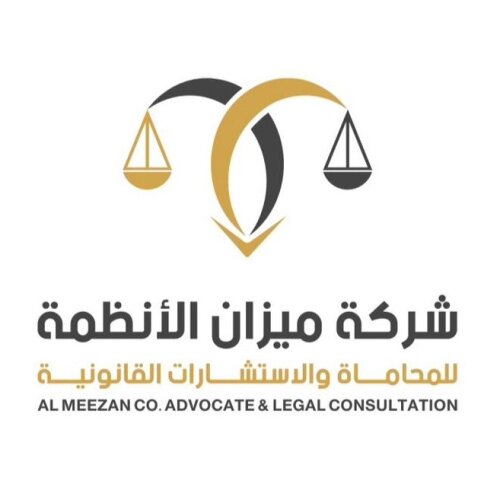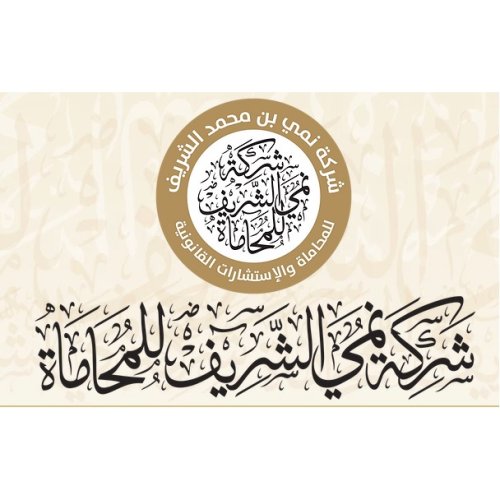Best Lawsuits & Disputes Lawyers in Makkah
Share your needs with us, get contacted by law firms.
Free. Takes 2 min.
List of the best lawyers in Makkah, Saudi Arabia
About Lawsuits & Disputes Law in Makkah, Saudi Arabia
In Makkah, Saudi Arabia, the legal framework surrounding lawsuits and disputes is based on Islamic Sharia Law, adopted by the Kingdom. This system allows individuals to file lawsuits in various areas including personal, business, and real estate disputes amongst others. The cases are primarily tried in local courts by qualified judges, following a procedure that ensures justice and a fair resolution of the dispute in hand. Ensure to consult a knowledgeable lawyer to navigate the nuances of Sharia Law in the context of lawsuits and disputes.
Why You May Need a Lawyer
The complexities associated with the local legal proceedings in Makkah often necessitate professional legal support. You may need a lawyer for various reasons - to understand the litigation system, to draft legal documents, to represent your case in court, and also to negotiate settlements outside of court. Hiring a lawyer enhances the possibilities of a favorable outcome in situations like contract disputes, business disputes, property disagreements, or any civil or personal rights violations.
Local Laws Overview
Saudi Arabia’s laws are based on Islamic Sharia, which in itself is a comprehensive legal system addressing civil and criminal matters. In the realm of disputes and lawsuits, few key aspects are particularly noteworthy: the process for filing a lawsuit, the right to a fair trial, the standard of evidence, and the penalties. Notably, Saudi Law takes a serious stance against false allegations and perjury. Moreover, the system prioritizes mediation and reconciliation before adjudication, as encouraged by Islamic principles.
Frequently Asked Questions
What is the process for filing a lawsuit in Makkah?
Lawsuits in Makkah begin with filing a complaint at the relevant court, post which the defendant is summoned to respond. The court then reviews all submitted evidence and the judge makes a decision based on the merits of the case.
Can I represent myself in court?
While you have the right to represent yourself in court, the complexity of Saudi Arabia's judicial system generally necessitates having a lawyer to navigate the process effectively.
What types of disputes can I legally resolve in Makkah?
The range of disputes that can be legally addressed includes but is not restricted to business disputes, personal rights, property disputes, and contractual issues.
How long does a legal proceeding take in Makkah?
The duration of legal proceedings can vary drastically depending on the complexity of the case, the evidence involved, and the workload of the court. It could range from a few months to a couple of years.
What is the official language in courts in Makkah?
The official language of courts in Makkah is Arabic. Therefore, it might be beneficial to hire an Arabic-speaking lawyer or translator.
Additional Resources
Ministry of Justice and the Saudi courts system websites are great resources for general information and specific case inquiries. The Saudi Bar Association can help you find a suitable local lawyer. Numerous resources, both offline and online, can help you understand Islamic Sharia law as it is practiced in Saudi Arabia.
Next Steps
If you need legal assistance in Makkah around lawsuits and disputes, start by identifying and consulting a locally-based lawyer who specializes in your area of concern. Lawyer selection can be based on referrals, online research, and consultation with the Saudi Bar Association. Ensure you have all the relevant documentation and evidential paperwork needed before you initiate the process. Understanding and respecting local customs, norms, and the judicial system can greatly aid the course of your legal journey.
Lawzana helps you find the best lawyers and law firms in Makkah through a curated and pre-screened list of qualified legal professionals. Our platform offers rankings and detailed profiles of attorneys and law firms, allowing you to compare based on practice areas, including Lawsuits & Disputes, experience, and client feedback.
Each profile includes a description of the firm's areas of practice, client reviews, team members and partners, year of establishment, spoken languages, office locations, contact information, social media presence, and any published articles or resources. Most firms on our platform speak English and are experienced in both local and international legal matters.
Get a quote from top-rated law firms in Makkah, Saudi Arabia — quickly, securely, and without unnecessary hassle.
Disclaimer:
The information provided on this page is for general informational purposes only and does not constitute legal advice. While we strive to ensure the accuracy and relevance of the content, legal information may change over time, and interpretations of the law can vary. You should always consult with a qualified legal professional for advice specific to your situation.
We disclaim all liability for actions taken or not taken based on the content of this page. If you believe any information is incorrect or outdated, please contact us, and we will review and update it where appropriate.
Browse lawsuits & disputes law firms by service in Makkah, Saudi Arabia
Makkah, Saudi Arabia Attorneys in related practice areas.











